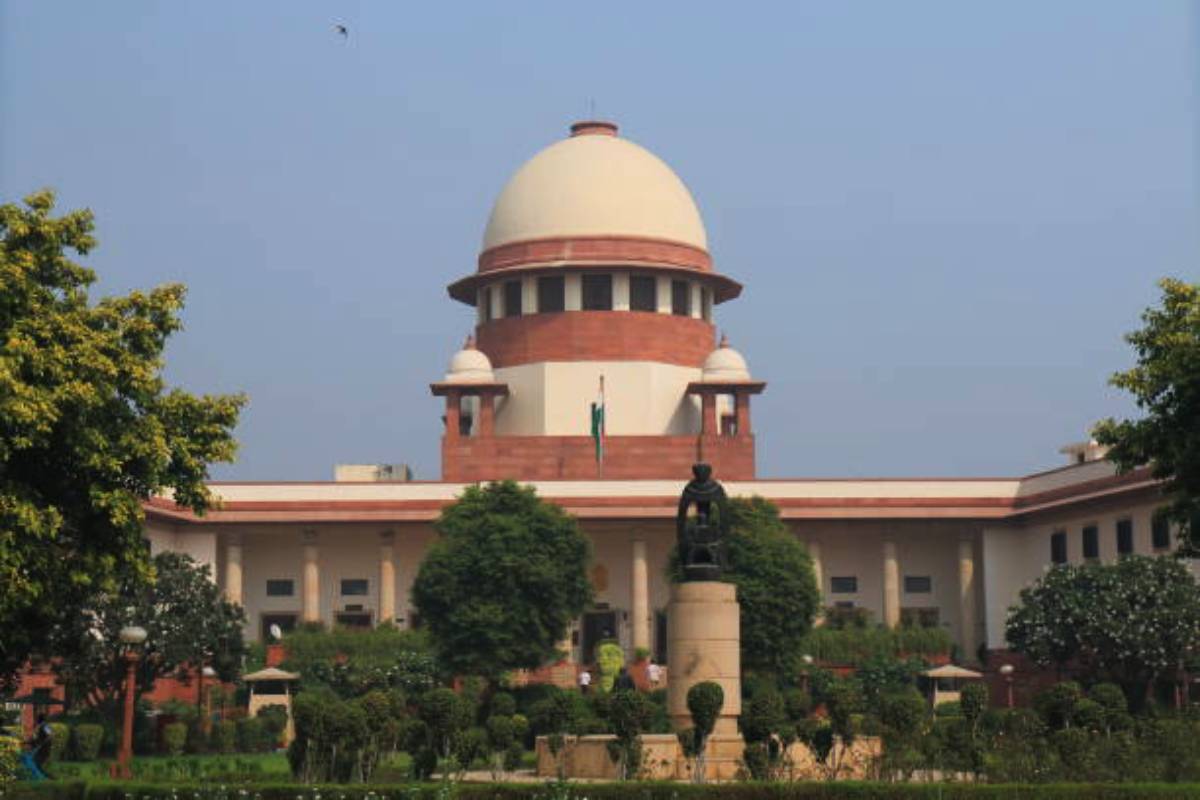Pegasus snooping row: SC adjourns hearing for April 22
The Supreme Court on Friday posted for April 22, 2025 the hearing on a batch of petitions seeking inquiry into the allegations that the government is using Israeli software Pegasus for snooping.
There is no such thing as the absolute concept of biological man and biological woman, says CJI Chandrachud.
Statesman News Service | New Delhi | April 18, 2023 11:10 pm

Supreme Court [Photo : iStock]
The Supreme Court on Tuesday confined the examination of the plea seeking legal recognition of same sex marriage tom the Special Marriage Act without in any way infringing upon different personal laws of the Hindus, Muslims and the others.
Limiting the scope of the issue to the Special Marriage Act without touching upon other consequential issues including adoption, a five-judge constitution bench comprising Chief Justice D.Y. Chandrachud, Justice Sanjay Kishan Kaul, Justice S. Ravindra Bhat, Justice Hima Kohli and Justice Pamidighantam Sri Narasimha said, “It cannot decide everything before deciding anything” leaving other issues to follow in due course of time for their resolution.
Advertisement
The entire issue got narrowed down to the Special Marriage Act as senior advocate Mukul Rohatgi appearing for one of the petitioners seeking legal recognition of same sex marriage told the court that they were seeking this declaration in favour of same sex marriage independent of Hindu personal law, under the Special Marriage Act.
Advertisement
The daylong hearing saw Solicitor General Tushar Mehta appearing for the Centre telling the constitution bench to leave the issue to be dealt by the legislature. He sought issuance of notice to the States to seek their response on the contentious issue – a plea that was opposed by the lawyers appearing for the different petitioners who argued that issue involves fonduta rights of persons seeking legal sanction of same sex marriage.
Senior advocate Abhishek Manu Singhvi appearing for a petitioner seeking legal sanction to same sex marriage said that consequential issues involves so many facets that mere recognition of same sex marriage cannot be left to be an empty shell.
Senior advocate Kapil Sibal appearing for a Muslim organisation said that though personally he was in favour of the issue but it involves may complexities like in the event of a breakdown of the same sex marriage who will be the father and who will be projected as wife for the purposes of criminal code.
Sibal told the court that since it (court) has limited the ambit of issue to the Special Marriage Act, he is out of the case as he was to argue on the basis of Muslim personal law. However, the bench asked him to assist the court in the matter at a later stage.
Another senior advocate Rakesh Dwivedi cautioned the court that even if it decides the issue by limiting it to Special Marriage Act, the such a same sex couple would be at the window of other consequential reliefs.
The court is seized of a batch of petitions relating to the issue of same sex marriage, challenging the denial of the access to the to the institution of marriage to the members of the LGBTQ+ community as being in contravention of Part III of the Constitution, including Articles 14,15,19 and 21.
Advertisement
The Supreme Court on Friday posted for April 22, 2025 the hearing on a batch of petitions seeking inquiry into the allegations that the government is using Israeli software Pegasus for snooping.
The Supreme Court on Friday adjourned the hearing on a plea by the Central Bureau of Investigation (CBI) seeking the transfer of trial against the separatist leader and the head of the banned Jammu Kashmir Liberation Front (JKLF) Yasin Malik and five others in two kidnapping and terror related cases from Jammu and Kashmir to Delhi.
The Supreme Court on Friday issued notice on the Central Bureau of Investigation’s (CBI) plea seeking the cancellation of bail of Dheeraj Wadhawan- the former promoter of the Dewan Housing Finance Corporation Ltd (DHFL)- in a multi-crore rupees bank loan scam case.
Advertisement
